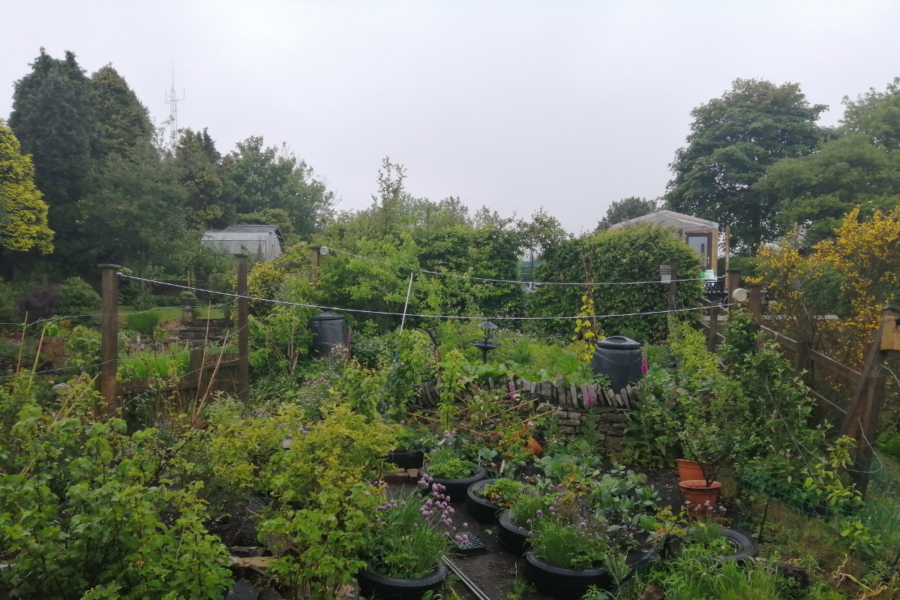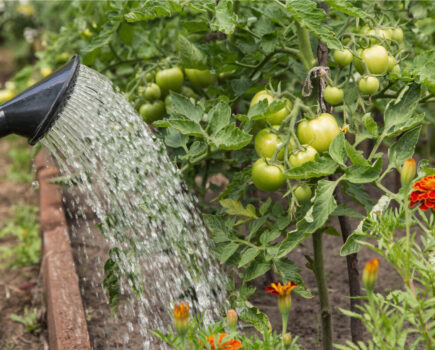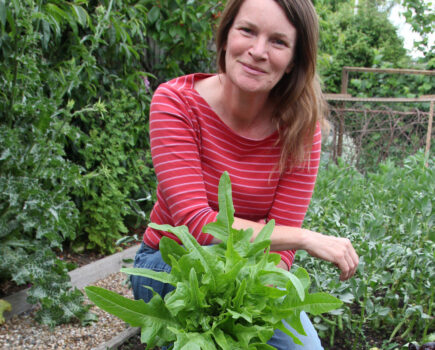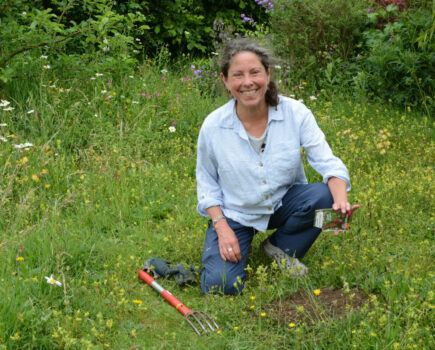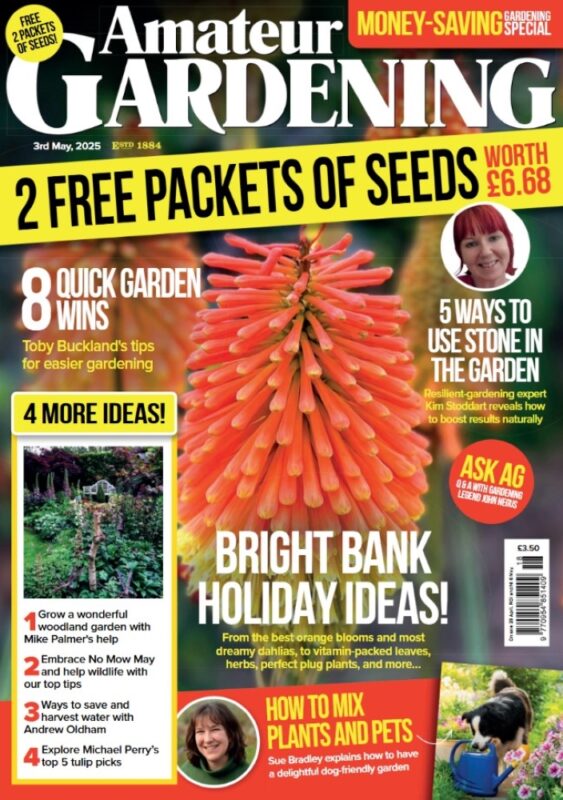Andrew Oldham finds gardeners’ gold in perhaps unexpected places.
Gardening for some can be a bit ‘icky’, all that ‘mud’ and those ‘squishy things.’ Eurggh! Then there is an area of gardening that makes even the hardiest gardeners cross their legs. Yes, I am talking about wee. In polite society there would now be multiple scraping of chair legs on parquet flooring, a few dozen mumbled excuses about feeding the neighbour’s cat, then the slamming of doors and the screech of tyres. A few weeks later and you will get those knowing looks from people you don’t know who whisper about you having potentially exposed yourself in the garden.
We are all happy to talk about comfrey, even though when added to water it smells like rampaging flatulence. We are full of facts about the nutritional benefits of nettles, but mention urine and people get a bit funny. I remember a few years ago giving a talk on straw bale gardening, and how if you get the bales in situ a few weeks earlier then needed, then soak them with urine, you will have bumper crops.
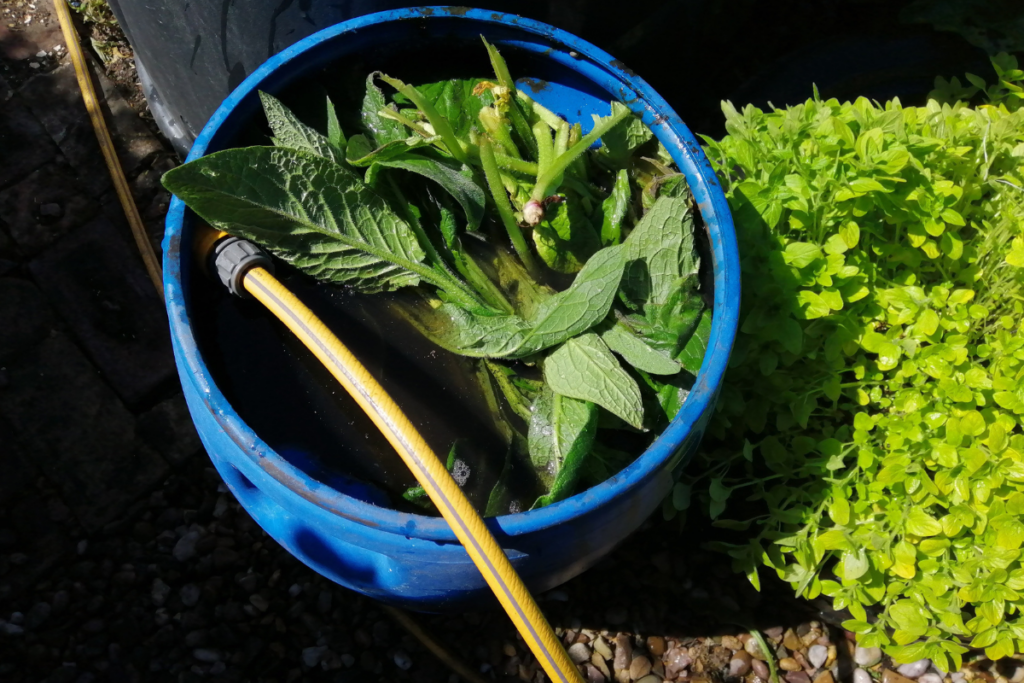
The thing is the humble wee is packed full of nitrogen, and this accelerates the rotting process of compost. It was about ten minutes into my straw bale talk when I called urine ‘liquid gold’ and the organiser slipped me a note which read: ‘Please, tone down the language.’ I wonder whether it was the word ‘nitrogen’ or when I stated that urine was comprised of 95% water, 2.5% urea (the nutrients), and a further 2.5% of which is a mixture of minerals, salts, hormones and enzymes that offended? It may have been the word ‘hormones’ as it confuses many, along with the idea that any medications we take could kill our plants.
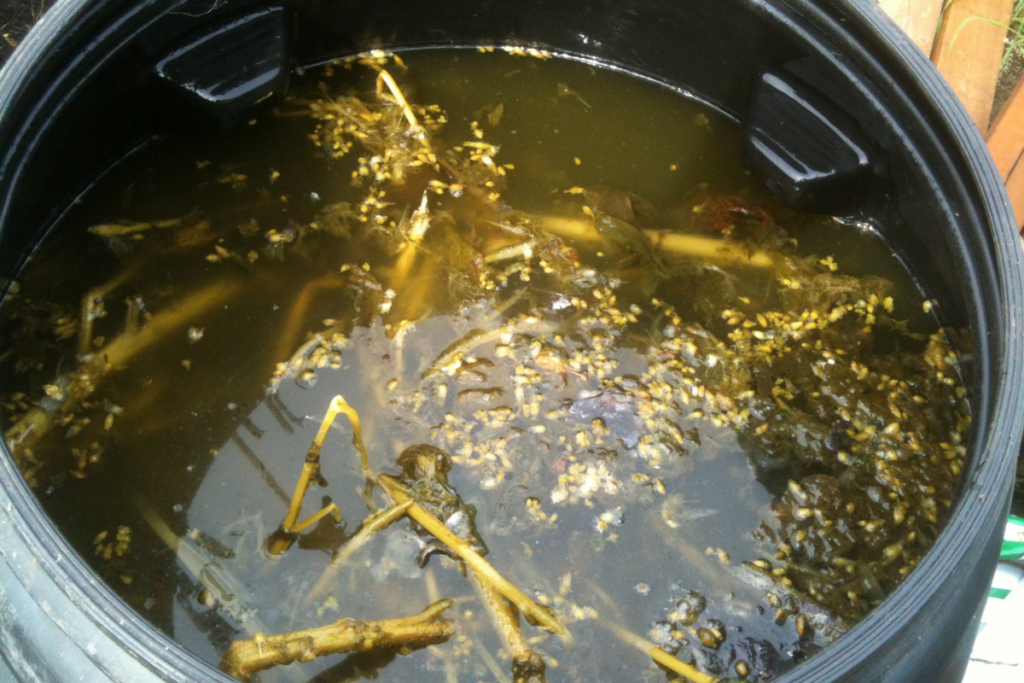
Re-thinking waste
Only 2.5% of urine could carry traces of medication, and as all urine feeds are watered down to a weak tea, it’s better than the way we usually dispose of it. In polite society we somehow feel it is better to pump all our waste into rivers and out to sea, killing everything but algae along the way. Our ancestors knew the power of waste, but we seem to have lost ourselves in the mistaken belief that making our own nettle and comfrey tea is doing our bit for nature while we thoughtlessly pollute the very life source of nature that is water, going about ‘our business’, everyday.
Now, I am not asking you all to rush out and buy a composting toilet, I am thinking about how we can fully make use of the materials we readily have access to in our garden. Still too many of us take perennial weeds and throw them in the bin. Hopefully, it is a green bin, and it will at least become compost, However, even perennial weeds can be added to barrels of water and allowed to rot down. You thought comfrey tea smelt awful? Well this is the next level of involuntary gagging! However, once the weed tea is strained, the now truly-dead weeds (after six months in water), can go on the compost heap.
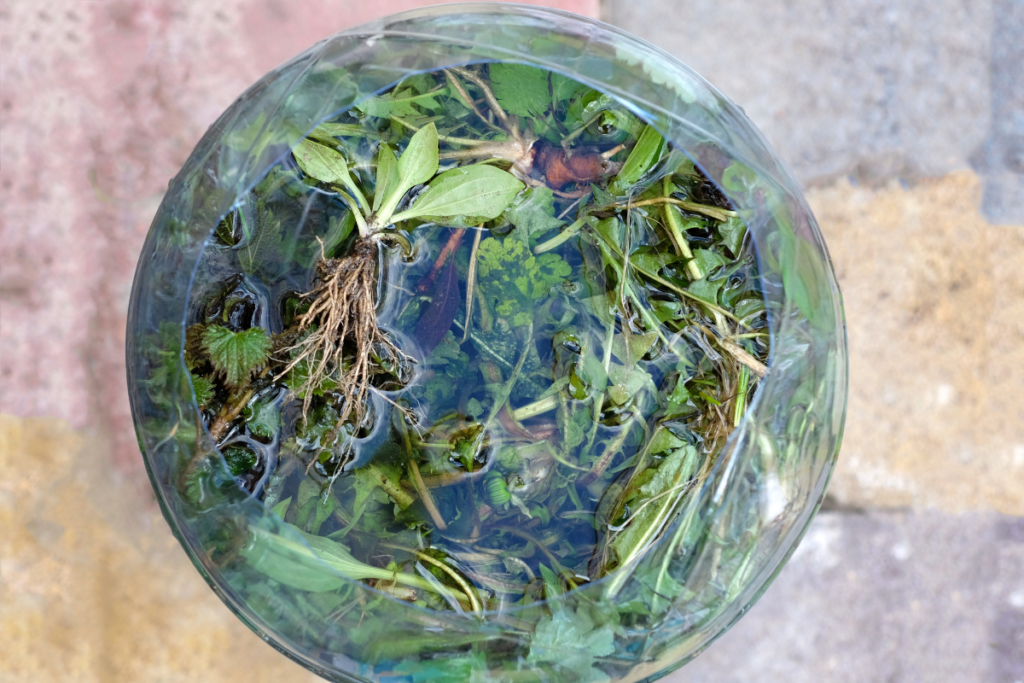
But what of invasive weeds?
Japanese knotweed should never be touched. Giant hogweed looks lovely but burns you – the sap hits your skin, and the sunlight does the rest and brings us out in hideous irritations. Himalayan balsam, the pink-flowered weed with the exploding seed pod beloved by children and adults who never got over the joy of helicoptering sycamore seeds, is something that can be bashed to the point that it feeds the soil. I have been on ‘balsam bashing’ gangs that rove the countryside plucking the thick stems out of the ground just as they start to flower. Then we crunch them in gloved hands, crush them under boot and pile them high.
This is not an offering to the forest gods but a practice I have done with countryside wardens. When no one is looking, they quickly whisper: ‘Does anyone need the toilet?’, those who do, go, and start the whole process of decay all over again. It is the sheer height and volume of these piles, so I was told, that prevents the Balsam from coming back. However, looking around our forests, canals and rivers, I am not so sure whether this is working or whether we just need more bashers who desperately need a wee.
Everything we waste has a role in our food chain
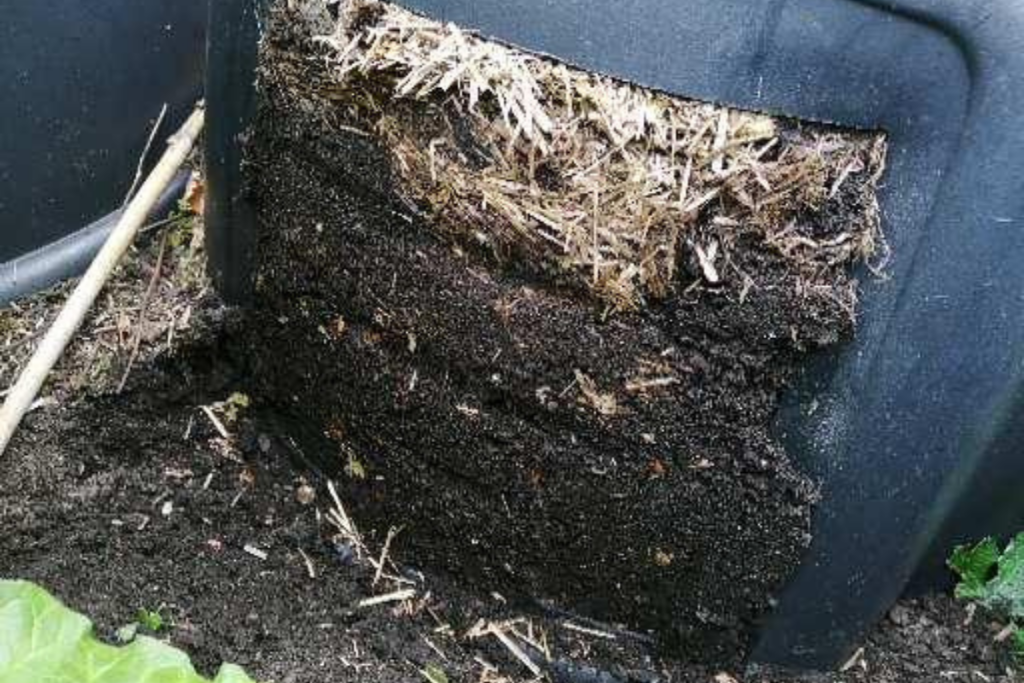
The most simple and significant of these is compost. Everyone can compost, from small scale wormeries to gigantic bins found on country estates that steam all year round. Every community should have a compost bin. Layers of brown and green materials, with an added sprinkle of liquid gold, can soon be feeding your plants. I also supercharge mine with the spent bedding from my hens, which is a true compost accelerator. You don’t even need an enclosed bin to get started with composting, as open heaps can be tucked away out of sight.
This idea of decay makes some squeamish, but let’s face some basic facts about the food you eat and the water you drink. The food you eat grows from soil that is effectively made up of things that have decayed for billions of years: rocks, animals, plants, and finally, one day, you. This also means the water you drink once passed through a Tyrannosaurus Rex. That’s right, even the posh bottled stuff has passed through the bladders of countless reptiles, fish, crustaceans, slug, and mammals to get to you. For billions of years all of them went to the toilet, adding to the soil and recycling the water.
Now, to quickly change the subject for the squeamish, let’s talk about poisons. You have to be careful where you source your manure from because there have been a number of cases where it has caused Aminopyralid poisoning of plants. Aminopyralid is a herbicide used in agriculture that is still moving off farms and into our gardens. The signs are simple: plants twist and distort, and fail to produce flowers or fruit. The fact that no solutions have been put on the table to stop this is disturbing, but at least we can take one big pollutant out of the equation, and that is human waste. Discussing how we manage our waste is the first step to saving billions of pounds each year and clearing our rivers and seas. Now, that’s the type of ‘icky’ conversation a polite and civilised society should be having.
BIO
Andrew Oldham is a self-sufficient(ish) disabled gardener who believes in the joy of down-to-earth growing and cooking. He lives high on the Saddleworth hills with his family at Pig Row. Find him on all social media platforms as @lifeonpigrow
Find more tips, advice and articles like this at the Amateur Gardening website. Subscribe to Amateur Gardening magazine now.

